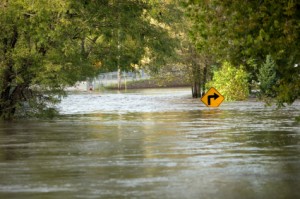 Tropical Storm Cindy made landfall in the United States on Thursday and left plenty of devastation in its wake. Nine people have died including a 10-year-old boy, and emergencies have been declared in Alabama and Louisiana. Evacuation requests have been issued in several states, and multiple levees have been damaged.
Tropical Storm Cindy made landfall in the United States on Thursday and left plenty of devastation in its wake. Nine people have died including a 10-year-old boy, and emergencies have been declared in Alabama and Louisiana. Evacuation requests have been issued in several states, and multiple levees have been damaged.
But perhaps what’s most worrisome, is how many roads have been closed due to rising floodwaters.
Meanwhile, authorities in the small town of West Alton, Missouri, urged residents to evacuate Wednesday and shut down traffic along a busy section of the Missouri River as a downpour of rain continued to flood parts of the Midwest.
Authorities said Wednesday that it’s unclear when traffic would be reopened along the closed 14-and-a-half-mile stretch of the Mississippi River. The passageway vital for transporting goods and agricultural products was closed by the U.S. Coast Guard due to high water and a swift current…
…According to Missouri transportation officials, I-55 was reopened Thursday after rising water levels on the Meramec River forced its closure.
A 57-mile stretch of I-44 from central to southern Missouri is closed, along with a 23-mile stretch in suburban St. Louis, according to the AP…
…More than 270 roads remain closed across the state Wednesday, Missouri transportation officials said.
Keep in mind that this storm was relatively small. It was substantial, but it was no Hurricane Katrina. When it made landfall, the wind speeds were significantly less than what you’d see in a category 1 hurricane. And yet it still managed to damage levees and shut down large stretches of roads, as well as vital waterways.
And that’s important for preppers to keep in mind because as you all know when the trucks stop delivering food, medicine, and fuel, everything grinds to a halt. And if blocked roads hinder our transportation system for too long, our modern society will disintegrate. Obviously, most storms aren’t capable of doing that, but it just goes to show how easy it is to disable our transportation system.
Our society is extremely reliant on the “just in time” delivery of goods. Our grocery stores and gas stations aren’t designed to store large amounts of supplies in case of an emergency. They’re designed to supply your immediate needs, and they rely on daily deliveries to remain operable. That’s why when disaster strikes, there are almost always shortages.
So don’t be unprepared for the next disaster, whatever it may be. Have a plan for any situation, and maintain a diverse supply of survival foods. Because when the trucks stop delivering, there’s no telling where your next meal is going to come from.
Read More:
The Prepper’s Blueprint: The Step-By-Step Guide To Help You Through Any Disaster
When The Trucks Stop Delivering ‘The System’ Will Collapse
25 Must Have Survival Foods: Put Them In Your Pantry Now
Learn How to Properly Sandbag Your Home Before the Next Storm Arrives
This article was originally published at Ready Nutrition™ on June 23rd, 2017







Most people live for the “now.” They’re the ones we see stranded and standing on the roofs of their cars….